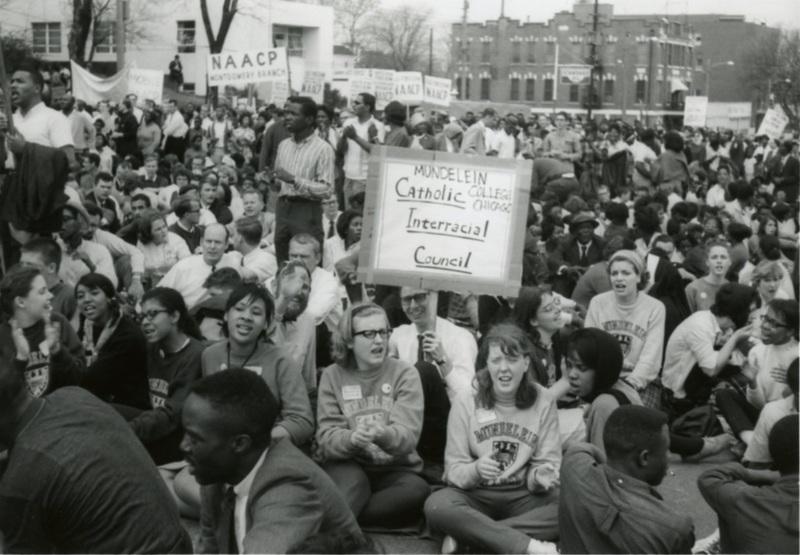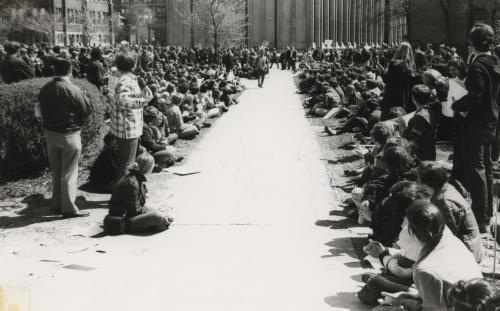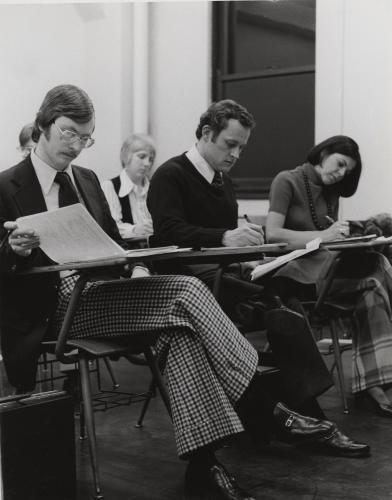Faith and Social Justice
Even before Loyola’s founding in 1870, the Jesuits worked to maintain an intellectual tradition marked by transformation. For St. Ignatius of Loyola, the Basque Catholic priest who lead the first group of Jesuits and founded the Society of Jesus in the 16th century, intellectual transformation entailed attempting to understand one’s own “way of proceeding.” In what has since come to be known as the Ignatian methodology, the individual is invited, along their educational journey, to attend to what they are experiencing, reflect deeply about that experience, make an informed judgement, and determine what that judgement might call for by way of choice or action and commitment.
In practicing such a methodology, the student may discover self-awareness, but St. Ignatius Loyola also thought that they may discover ways to direct that self-awareness outward. Transformation, in this way, is not only an internal endeavor, but an endeavor that becomes embodied in the communities in which we live.
Through efforts that we label as “Social Justice and Faith,” the Loyola community endeavors to achieve that task that the Ignatian methodology demands. From activism and assembly around some of history’s important political movements, to founding institutions committed to teaching and researching solutions to the inequalities that weigh on society, Loyola has been at the forefront of social and civic engagement and is proud to highlight its activism and political engagement in and out of the classroom.
Transformation cannot happen all at once; however, passion can and has taken us a long way. Notably, St. Ignatius Loyola would often punctuate his letters with the expression ite, inflammate omnia— or, “go, set the world on fire,”-- an idea that encapsulates the spirit of a transformative education and one that we encourage in each and every Loyolan to internalize.
For this section of the exhibit, we showcase some of our university's engagement with social justice, calling attention to key people, places, and events from the last 150 years that have contributed to Loyola’s mission to empower and transform its community in positive ways.


